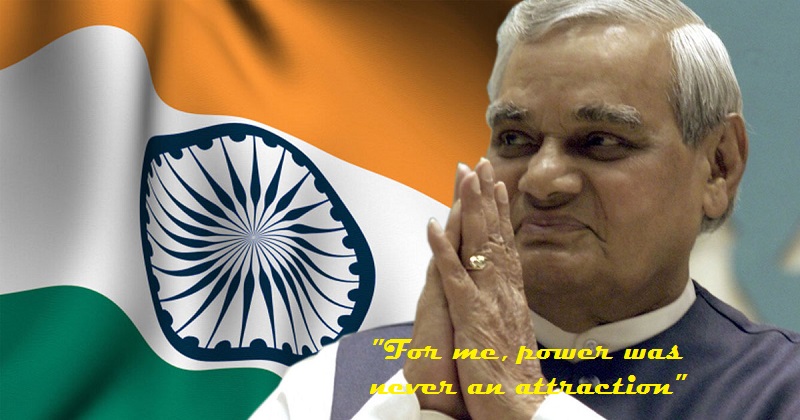
Our nation is remembering former Prime Minister late Atal Bihari Vajpayee on his 95th birth anniversary today on 25 December. Vajpayee was one of the most admired, respected and loved politicians of India. He was the first non-Congress politician to complete a five-year tenure as Prime Minister of India. He was lauded as a statesman politician whose acceptability across the party lines brought the once untouchable, led the BJP to the centre stage of politics in the late 90s.
Atal Bihari Vajpayee was elected as the prime minister of India three times. He first became the PM in 1996. However, his minority government could only last for 13 days due to lack of majority. He returned to power in 1998 but government collapsed after 13 months. He was again re-elected as PM in 1999 and became the first non-Congress leader to complete his full five-year tenure as PM.
Vajpayee was an orator par excellence and a passionate poet of repute. His poetry was full of passion and patriotism and inspired thousands.
Here Are Interesting Facts About Atal Bihari Vajpayee :
Vajpayee was sworn-in as the 10th Prime Minister of India in 1996, when the Bharatiya Janata Party (BJP) emerged as the single largest party in the general elections that year. However, he failed to prove majority in Parliament and had to resign after 13 days.
In 1998, Vajpayee again became prime minister of the country. This time his government lasted for 13 months.
Vajpayee became PM of the country for the third time in 1999. This time he completed a full term of five years as prime minister.
Vajpayee was the first person to deliver a speech to the United Nations General Assembly in Hindi in 1977.
The former prime minister had also participated in the Indian freedom struggle. He was first arrested in 1942 during “Quit India Movement”.
He had also worked with Deendayal Upadhyaya to form the Bharatiya Jana Sangh.
Vajpayee was arrested along with several other opposition leaders from 1975 to 1977 during the Internal Emergency imposed by Indira Gandhi.
He also served as the Minister of External Affairs in Prime Minister Morarji Desai’s cabinet.
The former prime minister was responsible for the formation of Janata Party against the Congress.
The Janata Party collapsed soon after Desai resigned as Prime Minister in 1979. The erstwhile members of the Bharatiya Jana Sangh came together to form the Bharatiya Janata Party (BJP) in 1980. Vajpayee became the first president of the saffron party. He held the post till 1986.
India conducted five underground nuclear tests in the Pokhran desert in Rajasthan in May 1998 during Vajpayee’s tenure as PM.

Post Your Comments